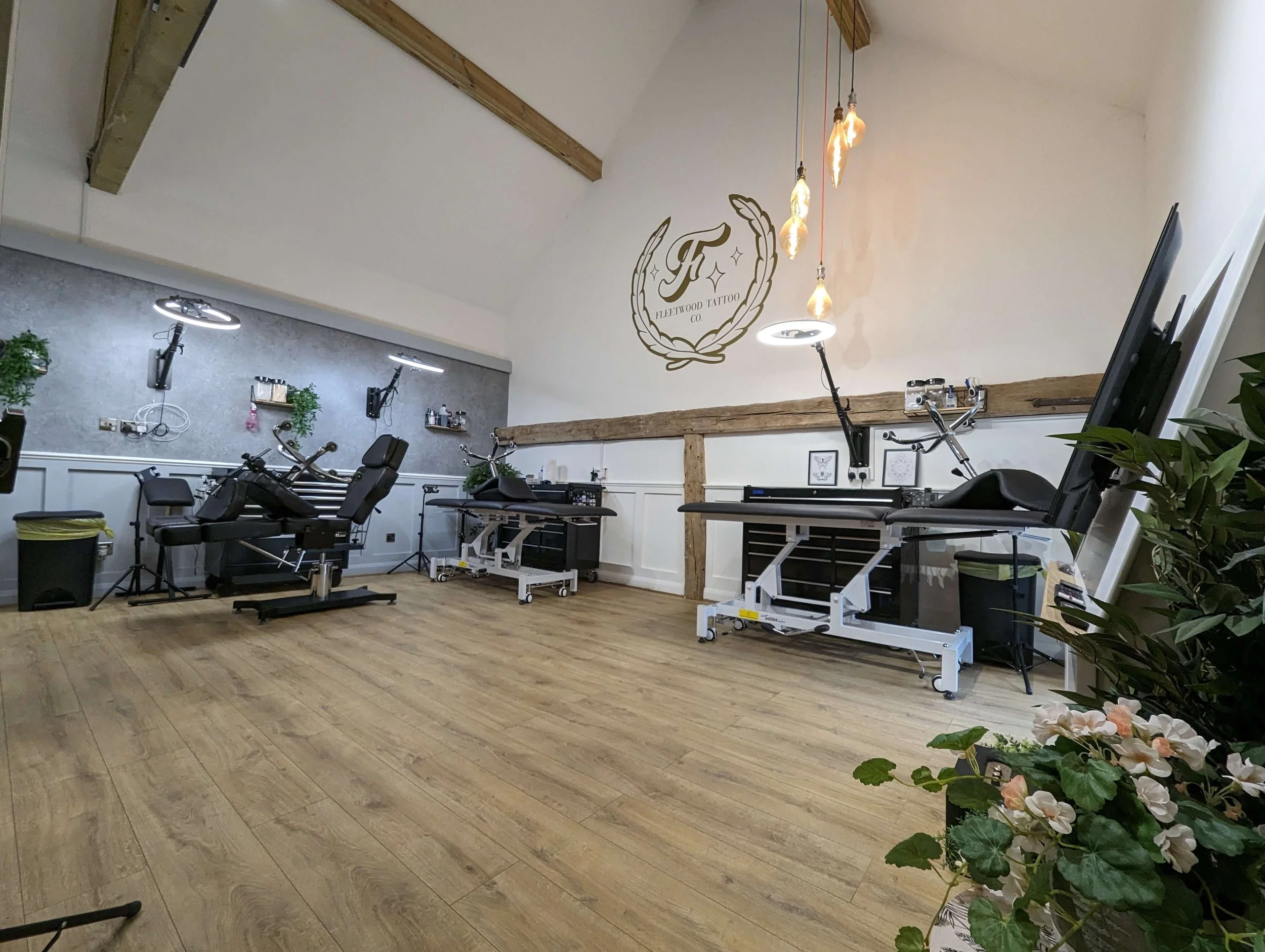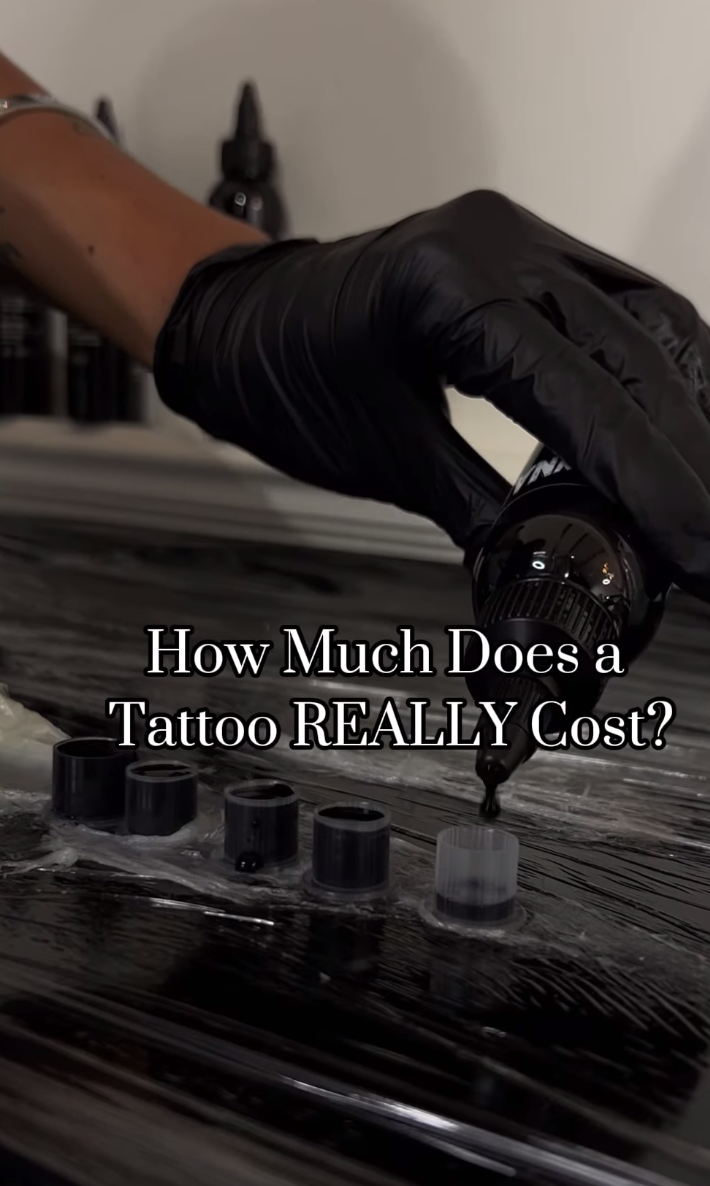how much does a tattoo really cost?
If you're considering getting a tattoo, one of the first questions that comes to mind is: How much is this going to cost? While it’s easy to find a wide range of prices from different studios and artists, understanding the breakdown of tattoo costs can be a bit more complicated. From design creation to the aftercare process, there are many factors that contribute to the overall price.
Let’s take a deeper look into what you should expect to pay for your tattoo and why it can vary.
1. Artist Experience & Skill Level
The first factor that impacts tattoo pricing is the artist's skill and experience. Just like any other profession, highly skilled and experienced tattoo artists charge more for their work. An artist who has spent years perfecting their craft and has a portfolio full of intricate, high-quality tattoos will usually charge higher rates. Their expertise ensures you’ll get a tattoo that’s not only beautiful but also done correctly, minimizing the risk of mistakes.
Glen Carloss
On the other hand, newer artists may offer lower prices, but the trade-off is that you may not have the same level of confidence in the quality of their work.
2. Tattoo Size & Complexity
Tattoo by Glen Carloss
It’s no secret that larger tattoos require more time, effort, and skill. Generally, tattoo prices are based on how long it will take to complete the design. A small, simple tattoo could be done in under an hour, while a full sleeve or large back piece may take several sessions over a span of days or weeks. The more complex the design (think fine line work, shading, or vibrant colour), the higher the cost will be.
Tattoo by Katie J
Here’s a general breakdown of tattoo prices in the UK based on size and complexity:
Small tattoos (1-3 inches): £50 – £150
Medium tattoos (4-6 inches): £150 – £400
Large tattoos (full sleeves, backs, etc.): £500 – £2,000 or more
More complex designs, such as realistic portraits, full-colour pieces, or highly detailed black and grey tattoos, will be priced higher due to the time and skill required. Simple line work or text may be less expensive, but larger designs with intricate shading or colour work will always carry a premium price tag.
3. Tattoo Studio Location
Fleetwood Tattoo Co, Rettendon, Essex
The location of the tattoo studio plays a significant role in the pricing. Studios located in cities or high-demand areas generally charge more because the cost of living is higher. In contrast, studios in smaller towns or less popular areas might offer lower prices. Additionally, the studio’s reputation and ambiance can also impact the overall price.
4. Tattoo Design
The intricacy of the design can also affect the price. Simple tattoos like a small symbol or text usually have a flat rate, whereas custom designs that require more time to create (especially if the artist needs to sketch it out) could cost more. Custom designs often involve back-and-forth discussions between the artist and the client to ensure the design is perfect before starting the tattooing process.
By Glen Carloss
If you bring in your own design, there may be an additional charge for design adjustments or for the artist's time in perfecting it. On the other hand, if the design is straightforward or can be replicated, the price could be more affordable.
Eden Edwards
5. Hourly Rates vs. Daily Rates
In the UK, some tattoo artists charge by the hour, while others offer daily or session rates. Hourly rates typically range from £80 to £150 per hour, depending on the artist’s experience and the complexity of the design.
For larger projects, like full sleeves or large back pieces, artists may provide a daily rate, which can range from £300 to £600 or more for a full day’s work (usually 6-8 hours).
For smaller tattoos, you may find some studios offering a flat rate for specific designs (like a small tattoo or a traditional flash piece), which provides a bit more clarity on pricing upfront.
6. Tattoo Supplies
Tattoo artists use a variety of materials to carry out their work. These include needles, ink, gloves, sterilization equipment, and even the power used to run the machines. The cost of quality materials, especially premium inks and safety equipment, contributes to the overall price of the tattoo.
Some studios may also use single-use disposable equipment, which can increase costs, but this also helps to ensure a higher level of hygiene and safety.
7. Time and Sessions
Larger tattoos often require multiple sessions, especially if you’re getting a full sleeve, back piece, or large chest piece. The longer you’re in the chair, the higher the cost will be. Generally, the first session for a larger tattoo may be more expensive since it includes the initial design process, while later sessions might cost less but still add up over time.
In the UK, a typical tattoo session lasts around 2-4 hours, but larger pieces can take 6 hours or more in one sitting. If you’re getting a complex design, it may take several sessions to complete the piece, so it’s essential to factor in the cost of each visit.
8. Colour vs. Black & Grey
Colour tattoos are often more expensive due to the additional time and materials required.
Black & grey tattoos tend to cost a little less since they generally require less time to complete.
Ultimately, the final cost depends on the size, design, location, and the artist's skill level. It’s always a good idea to have a consultation with your artist beforehand to get an accurate quote based on your design.
We also made a video about this on our instagram so be sure to go and check that out for more information!
Thanks for reading, and we hope this helped with understanding tattoo prices more!
Love,
Fleetwood Tattoo Co <3



















